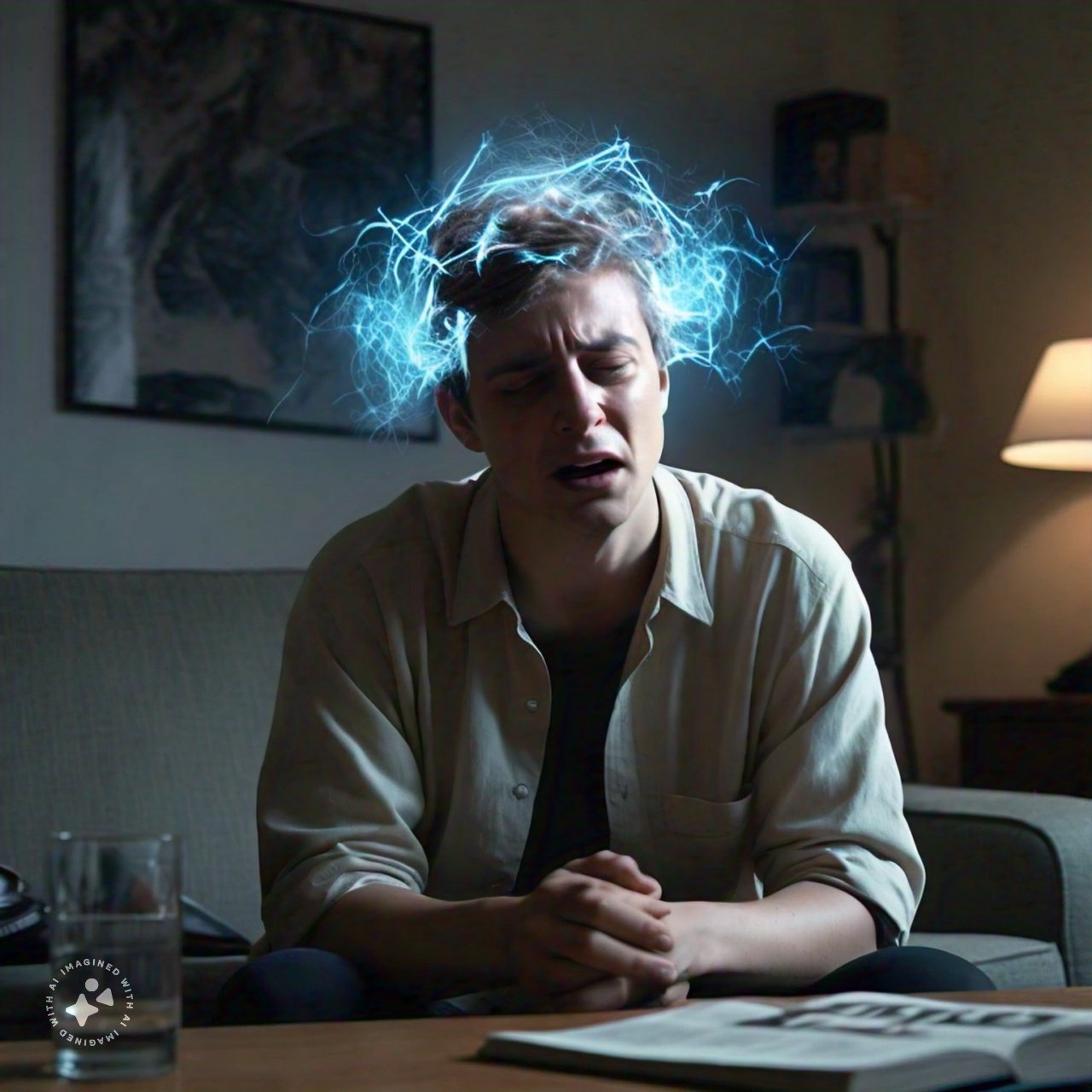Depression, often perceived as a transient bout of sadness, is in reality a far more complex and pervasive mental health condition. It silently afflicts millions globally, weaving a tapestry of persistent melancholy and disinterest that dims the vibrancy of everyday life. In this blog post, we embark on a journey to unravel the intricacies of depression. Our exploration spans various forms of this condition, including Major Depressive Disorder (MDD), Persistent Depressive Disorder, MDD with Psychotic Features, Seasonal Patterns in MDD, and Depression with Atypical Features. Each type manifests uniquely, presenting a spectrum of symptoms that challenge both those affected and mental health professionals. Crucially, we delve into the role of Selective Serotonin Reuptake Inhibitors (SSRIs) – a cornerstone in the therapeutic arsenal against depression. These medications, while not a panacea, offer a beacon of hope for many, illuminating pathways to reclaim the joys and colors of life obscured by the shadow of depression.
Understanding Depression
Depression is not a one-size-fits-all condition. It presents itself in various forms, each with distinct characteristics and implications for treatment. Major Depressive Disorder (MDD), the most commonly known type, is characterized by intense and persistent feelings of sadness and despair, often accompanied by a lack of interest in previously enjoyed activities. Persistent Depressive Disorder (PDD), previously known as dysthymia, represents a more chronic form of depression, with symptoms lasting for years, albeit often less severe than MDD.
MDD with Psychotic Features adds another layer of complexity, combining typical depressive symptoms with elements of psychosis, such as delusions or hallucinations. Seasonally Affective Disorder, a subtype of MDD, is unique in its pattern, typically arising during specific seasons, most commonly winter. Atypical Depression differs in its symptom presentation, often marked by mood reactivity (mood improvements in response to positive events) and hypersensitivity to rejection.
Symptoms of Depression
Recognizing the symptoms of depression is pivotal for early intervention. Common symptoms across different types of depression include a persistent feeling of sadness, hopelessness, and a loss of interest in activities once enjoyed. Physical symptoms can manifest as changes in appetite and sleep patterns, fatigue, and aches or pains without clear physical cause.
Emotional and cognitive symptoms often include feelings of worthlessness or excessive guilt, difficulty concentrating, and recurrent thoughts of death or suicide. It’s crucial to understand that these symptoms can vary in intensity and duration, depending on the type of depression and individual differences. Acknowledging these signs is the first step towards seeking help and finding appropriate treatment.
The Role of SSRIs in Managing Depression
What are SSRIs?
Selective Serotonin Reuptake Inhibitors (SSRIs) are a class of drugs that have revolutionized the treatment of depression since their introduction in the 1980s. SSRIs work by increasing the levels of serotonin, a neurotransmitter in the brain that plays a key role in mood regulation. Serotonin is involved in many functions, including emotion, sleep, and appetite. By blocking the reuptake (absorption) of serotonin into neurons, SSRIs increase its availability in the brain, thereby helping to elevate mood and alleviate some of the symptoms of depression.
SSRIs are preferred over older classes of antidepressants, like tricyclics and monoamine oxidase inhibitors, due to their more favorable side effect profile. They are generally considered safer, especially in cases of overdose, and tend to cause fewer and less severe side effects. Common SSRIs include fluoxetine (Prozac), sertraline (Zoloft), and citalopram (Celexa).
Effectiveness of SSRIs
The effectiveness of SSRIs in treating depression has been well-documented through numerous studies and clinical trials. SSRIs are particularly effective in treating moderate to severe depression, and they are often the first-line treatment option prescribed by healthcare professionals. While not every patient with depression will respond to SSRIs, a significant majority experience a reduction in symptoms such as sadness, hopelessness, and lack of interest in activities.
It’s important to note that SSRIs do not work instantly. It may take several weeks or even longer for their full effects to be felt. Additionally, the effectiveness of SSRIs can vary from person to person. Some individuals may need to try different SSRIs to find the one that works best for them.
While SSRIs are effective for many, they are not a cure for depression. Often, the best outcomes are achieved when SSRIs are combined with psychotherapy, lifestyle changes, and other treatments. Moreover, SSRIs can be more effective in treating certain subtypes of depression, like MDD and PDD, compared to others like MDD with psychotic features, where additional treatments may be necessary.
SSRIs in Action: A Closer Look
Case Studies and Real-Life Examples
Real-world examples provide valuable insights into the effectiveness of SSRIs in managing depression. For instance, a 35-year-old woman with Major Depressive Disorder (MDD) began treatment with an SSRI, experiencing notable improvements in mood and energy levels after several weeks. Another case involved a 42-year-old man suffering from Persistent Depressive Disorder (PDD), who found relief with an SSRI regimen, reporting reduced feelings of hopelessness and enhanced daily functioning.
These cases highlight the potential of SSRIs to significantly improve quality of life. However, it’s crucial to acknowledge that individual responses can vary. Some patients might require dosage adjustments or a switch to different SSRIs to achieve optimal results. Moreover, while SSRIs can be highly effective, they are not a one-size-fits-all solution and may not work for everyone.
Combining SSRIs with Other Treatments
Combining SSRIs with other treatments often leads to more comprehensive and effective management of depression. Psychotherapy, for example, can complement the biochemical effects of SSRIs by addressing underlying emotional and cognitive patterns contributing to depression. Cognitive Behavioral Therapy (CBT) is particularly effective in conjunction with SSRIs, helping patients develop coping strategies and more positive thought patterns.
Lifestyle modifications, including regular exercise, a balanced diet, and adequate sleep, can further enhance the efficacy of SSRIs. In some cases, especially for more complex or resistant forms of depression, combining SSRIs with other medications, such as mood stabilizers or atypical antipsychotics, may be necessary.
This multifaceted approach, integrating pharmacological treatment with psychotherapy and lifestyle changes, often results in better outcomes, offering a more holistic solution to managing the multifarious nature of depression.
Navigating the Challenges of SSRIs
Dealing with Side Effects
While SSRIs are generally well-tolerated, they can cause side effects, which are important to consider when starting treatment. Common side effects include nausea, headaches, drowsiness, dry mouth, and sexual dysfunction. These effects are usually mild and often resolve as the body adjusts to the medication. However, for some individuals, they can be more pronounced and impactful.
Effective management of these side effects is crucial for maintaining adherence to the treatment. Patients are encouraged to openly communicate with their healthcare providers about any side effects they experience. In some cases, adjusting the dosage or switching to a different SSRI can alleviate unwanted effects.
Additionally, incorporating lifestyle strategies such as dietary changes, regular exercise, and relaxation techniques can help mitigate some side effects. It’s also important for patients to understand that while side effects can be uncomfortable, they are often outweighed by the overall benefits of improved mental health and well-being that SSRIs provide. Patience and open communication with healthcare providers are key to successfully navigating these challenges.
Conclusion
SSRIs represent a significant advancement in the treatment of depression, offering hope and relief to many who struggle with this complex mental health disorder. While understanding and navigating the various types of depression can be challenging, SSRIs provide a viable and often effective treatment option, especially when combined with psychotherapy and lifestyle modifications. It’s important to acknowledge the potential side effects and work closely with healthcare professionals to optimize treatment. Ultimately, SSRIs can be a powerful tool in the journey towards mental well-being, highlighting the importance of seeking help and exploring all available options in managing depression.




